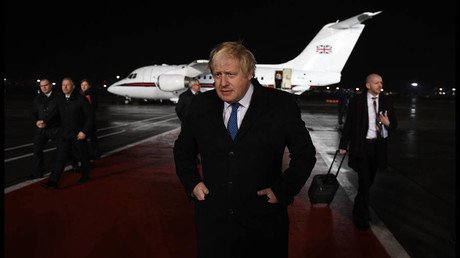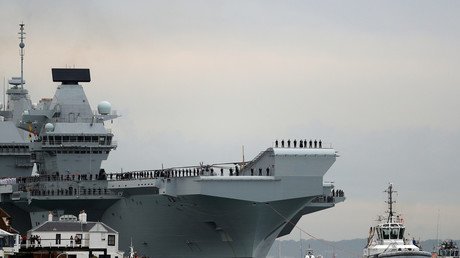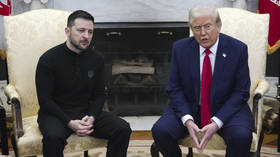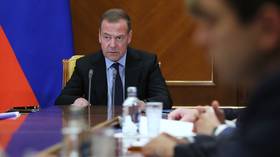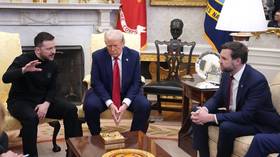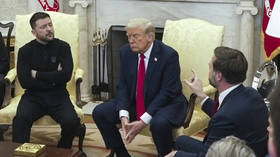Cold War codswallop: Cash-strapped UK Defense Chief deploys Russian deep-sea cable scare story
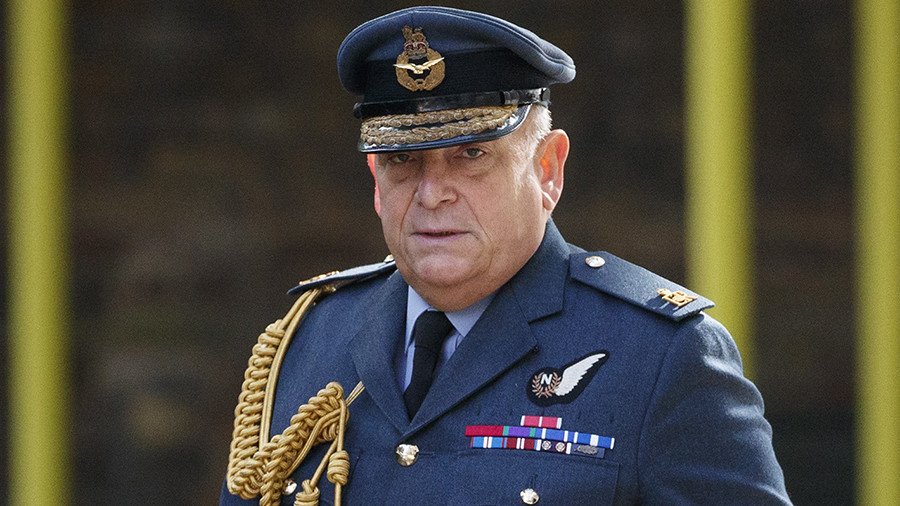
Russia’s Navy could cut the underwater cables that keep the world connected, says the head of Britain’s armed forces, in what appears to be a desperate plea for funding using the good old Russian bogeyman.
Britain is cutting its defense spending against the will of the forces themselves, of the public and of politicians. But Russia has been boosting its navy recently, which has proved useful for a classic piece of Cold War codswollop.
RT's Polly Boiko reports as UK military chief Sir Stuart Peach warns that Russia could cut off vital internet cables. pic.twitter.com/oEGcWYjEpA
— RT UK (@RTUKnews) December 15, 2017
Air Chief Marshal Sir Stuart Peach has joined the ranks of Russophobes, taking the role of chief doom-monger, raving about a Russian plot to cut underwater communication cables. Interestingly, his warnings come with the recommendation that Britain start working harder to keep up with any modernization in Russia’s forces. In other words, spend more money on shiny new ships.
In his annual lecture to the Royal United Services Institute in Whitehall, the chief of defence staff said: “In response to the threat posed by the modernization of the Russian navy, both nuclear and conventional submarines and ships, we, along with our Atlantic allies, have prioritized missions and tasks to protect the sea lines of communication.”
The massive network of underwater internet cables that criss-crosses the ocean floor, carrying 95 percent of communications and over $10 trillion in daily transactions, is vulnerable to attack, Peach warned.
Why he is convinced Moscow would target the wires is entirely unclear. Sinking economies and damaging trade is hardly in anyone’s interest. Russia has trade links as open as anywhere else.
"Imagine a scenario where those cables are cut or disrupted which would immediately - and potentially catastrophically - affect both our economy and other ways of living,” said Peach.
The Air Chief Marshal didn’t connect the dots that perhaps Russia would also face more than a little disruption being as it is, part of the modern, globalized, connected world. Military operation ‘Cut Nose Off To Spite Face’ (not a real operation) would be as likely to affect the world’s largest nation as any other.
In paranoid Peach’s imagination, written in his Policy Exchange report, the attack could be carried out using submarines or something as simple as a fishing trawler.
So, the Russians are investing in their Navy to carry out a super-duper underwater attack, which can be done with a fishing trawler.
Research suggests most other nations also own a certain number of fishing trawlers, so again it’s unclear why Russia has been singled out.
The underwater wires in question stretch around the US, Canada, Europe and even the horn of Africa, where actual offline pirates operate.
There are other nations which would benefit from such sabotage. North Korea, anyone? Are the underwater lines of communication stretching around Asia? Absolutely.
Russia could disrupt trillions of dollars in financial transactions, seriously damaging the UK economy if they touch these cables, Conservative MP Rishi Sunak warned earlier this month. Again, seemingly oblivious to the existence of a Russian economy, which is more than a little integrated with Britain’s, among others.
The hysteria around Russia at the moment also has British ministers convinced that Moscow meddled in the Brexit referendum, yet reviews and investigations have found 73p was spent on ads and 400 Twitter accounts were made, out of a total of more than 970million.
With this warning about undersea cables, perhaps NATO chiefs could start investing in systems which aren't vulnerable to an old trawler, rather than invent plots from the Kremlin in order to secure more cash from the state.
Beyond the rhetoric, if Britain is happy to allow diminishing troop numbers, a £30bn spending gap for the defense budget, and the axing of amphibious naval assault ships, it can’t be that worried.. can it?
